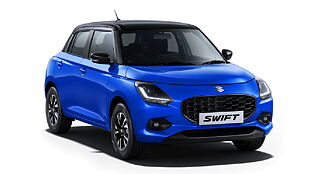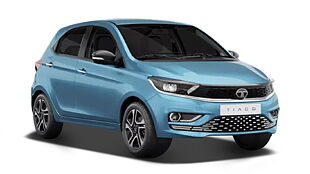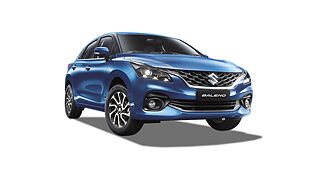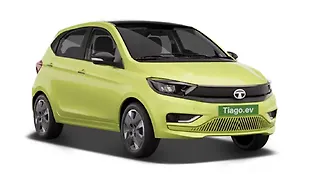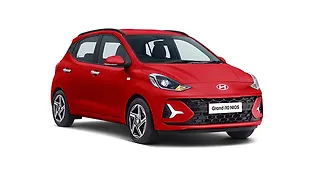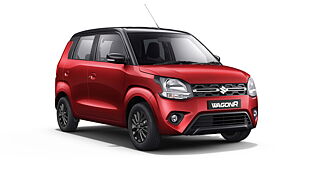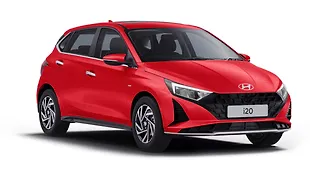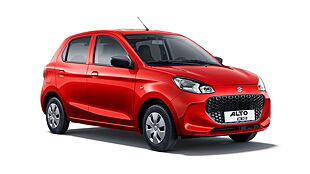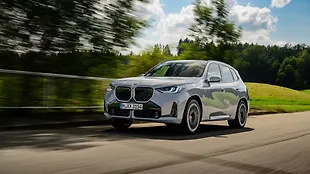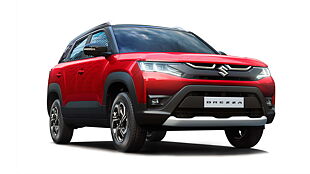Introduction
For car buyers who grew up with the question of 'kitna deti hai?', an automatic vehicle doesn't really top the priority list. You see, automatics are infamous for being expensive, uneconomic and lacking in terms of driver involvement. But, with technological advancements, the line between efficiency and affordability has blurred significantly. What's more, a clutch-less two-pedal setup elevates the convenience to a great extent in the crowded urban confines of our cities. In this article, we take a look at the workings of a CVT (continuously variable transmission), and how to efficiently drive CVT automatic cars to maximize fuel economy.
What is a CVT?

A continuously variable transmission (CVT), also known as a step-less transmission or a pulley transmission, is an automatic gearbox that can seamlessly change through a continuous range of effective gear ratios. In essence, a CVT has infinite gear ratios that are altered continuously on-the-fly to offer a smooth driving experience.
Unlike other mechanical transmissions that come with fixed gear ratios, a CVT isn't torque-dependent as it makes use of the infinite gear ratios to put power to the wheels. The construction of a CVT involves four cones (pulleys) that are suspended on two parallel axles and connected by a rubber belt. The cones move up or down, while the axles move closer or apart from each other to offer infinite ratios. While CVTs are torque-independent, certain carmakers offer pre-defined steps (for eg. six-step or seven-step) that control the movement of the pulleys and axles in order to provide seamless transition and a smooth power delivery.

The CVT technology uses one input from a prime mover to deliver variable output speeds and torque. If driven with suitable control, the transmission allows the input shaft to maintain a constant angular velocity even as the output speed varies.
How to drive a CVT car?

Driving a CVT automatic is identical to drivingany other automatic car available in the market. There’s no rocket science to it. So, you need to press the brake pedal and slot the gear-lever or gear-selector into the D (drive) mode. Upon releasing the brake pedal, the car will start lunging ahead without any accelerator input. This is also known as the ‘creep’ function of the gearbox.

Since there are no gears to shift, a CVT doesn’t come with a manual override. Instead, it gets steps which can be altered via paddle-shifters to better harness the torque. However, not all CVT-equipped cars come with paddle-shifters. In such cases, a carmaker may equip a CVT with S and L modes, which stand for ‘Sport’ and ‘Low’. Engaging into the S mode allows the gearbox to hold on to the steps longer before upshifting, while the L mode can be engaged to climb steep gradients, as it sends more torque lower down the rev range. Needless to say, in both these modes, the engine will consume more fuel than required.
Efficiently driving a CVT
1. Apply steady throttle inputs

It is essential to maintain a linear throttle input so as to maximize fuel economy and avoid unnecessary strain on the engine or the gearbox. Irregular throttle inputs, sudden acceleration or deceleration not only hampers efficiency, but also increases the shift-shock or the back and forth movement of the body. Gentle application of the right foot also ensures that the engine revs smoothly and the CVT can use its infinite ratios to upshift the gears, thereby reducing fuel consumption.
2. Avoid resting your foot on the brake pedal

The basic fundamental of driving any automatic car, since there isn’t a clutch pedal, is that you shouldn’t use your left leg at all. However, a few drivers who aren’t properly acquainted to the idea of automatic cars, tend to subconsciously rest their left foot on the brake pedal. This not only puts additional strain on the engine but it may also wear out the brake pads abnormally. So, in order to increase the fuel efficiency, avoid unnecessary braking and use the brakes judiciously.
3. Avoid aggressive driving
It should be noted that fuel efficiency and performance don’t go hand in hand. So, if you are driving aggressively and the engine is always on the boil, it will consume more fuel than required. In a typical CVT, when the engine is revved hard, the gearbox goes into an overdrive. So, you’ll notice that the engine starts making the revving sound but the gearbox doesn’t upshift quickly, inducing a slight head-nod. This is also where you’ll notice the ‘rubber-band’ effect of the CVT. And since aggressive driving reportedly hampers fuel efficiency by up to 33 per cent, it is advisable to drive in a relaxed manner.
4. Plan your overtakes

Unlike AMTs, which are typically slow-to-react to throttle inputs, CVTs aren’t inherently slouch. However, they are designed to reduce fuel consumption and offer a smoother driving experience, so they aren’t lightning-quick as some DCTs (dual-clutch transmissions) available in the market. Knowing this, you need to plan your overtakes carefully in order to keep the engine in the right rev band to go about the overtaking. In case the motor isn’t at the proper RPM, the gearbox will have to work through its ratios to deliver power to the wheels, in order to complete the overtake. This may result in consumption of more fuel.
5. Engage Neutral whenever possible
It is always recommended to shift the transmission into Neutral if you are stranded in traffic or at a red light. Failing to do so, if the car is at a standstill and if you still keep the gearbox in the drive mode, the engine won’t settle down into idle, which will result in more fuel consumption. What’s more, it will also put unnecessary load on the brakes. So, it is always advisable to shift the CVT into neutral and engage the handbrake. Further, it is also recommended to cut the throttle input whenever you approach a red light or anticipate a traffic situation.
6. Be gentle when getting off the line

When getting off the line, it is advisable not to accelerate quickly as it may put strain on the transmission since the engine rpm and drivetrain won’t be in sync. Not only will it require more fuel but it will also cause abnormal wear and tear of internal components.
7. Get acquainted with your engine/CVT

It is important to understand the working characteristics of your car’s engine and gearbox. And what better way than to get yourself acquainted with the car by spending more time behind the wheel. This way, you’ll learn how the engine behaves at various RPMs and the shift patterns of the transmission.
8. Maintenance and care
While we have covered all the aspects of how to efficiently drive CVT cars, one of the most important factors is your car’s preventive maintenance and upkeep. So, things like replacing/topping the engine oil, air and oil filter on timely intervals will go a long way in keeping your fuel bills in check and offering a complete peace of mind. Additionally, it is also important to maintain the appropriate tyre pressure, turning off the engine on red lights, and checking for wheel alignment.
Some Dos and Don’ts

Dos
- Slow down at traffic lights well in advance, and switch off the engine or engage neutral.
- Maintain adequate momentum on inclines so that you don’t have to rev the engine midway through the gradient.
- Check your car’s tyre pressure and tread wear. Adequate traction results in good fuel economy.
Don’ts
- Be linear in your throttle inputs and avoid aggressive driving.
- Remember, the thumb rule of driving an automatic is to not use your left leg at any point.
- Keep the gearbox in drive mode when going downhill, do not engage neutral. It helps in engine braking and takes the load off the brakes.

Follow these simple techniques and notice how the car rewards you with an improved fuel economy and keep fuel bills in check.

![Maruti Suzuki Baleno [2019-2022] Image Maruti Suzuki Baleno [2019-2022] Image](https://imgd.aeplcdn.com/272x153/cw/ec/37710/Maruti-Suzuki-Baleno-Right-Front-Three-Quarter-147420.jpg?wm=0&q=80)
![Maruti Suzuki Baleno [2019-2022] Right Front Three Quarter Maruti Suzuki Baleno [2019-2022] Right Front Three Quarter](https://imgd.aeplcdn.com/199x112/cw/ec/37710/Maruti-Suzuki-Baleno-Right-Front-Three-Quarter-147420.jpg?wm=0&q=80)
![Maruti Suzuki Baleno [2019-2022] Left Side View Maruti Suzuki Baleno [2019-2022] Left Side View](https://imgd.aeplcdn.com/199x112/cw/ec/37710/Maruti-Suzuki-Baleno-Left-Side-View-147411.jpg?wm=0&q=80)
![Maruti Suzuki Baleno [2019-2022] Left Front Three Quarter Maruti Suzuki Baleno [2019-2022] Left Front Three Quarter](https://imgd.aeplcdn.com/199x112/cw/ec/37710/Maruti-Suzuki-Baleno-Left-Front-Three-Quarter-147416.jpg?wm=0&q=80)
![Maruti Suzuki Baleno [2019-2022] Dashboard Maruti Suzuki Baleno [2019-2022] Dashboard](https://imgd.aeplcdn.com/199x112/cw/ec/37710/Maruti-Suzuki-Baleno-Dashboard-147413.jpg?wm=0&q=80)
![Maruti Suzuki Baleno [2019-2022] Dashboard Maruti Suzuki Baleno [2019-2022] Dashboard](https://imgd.aeplcdn.com/468x263/cw/ec/37710/Maruti-Suzuki-Baleno-Dashboard-154122.jpg?wm=0&q=80)
